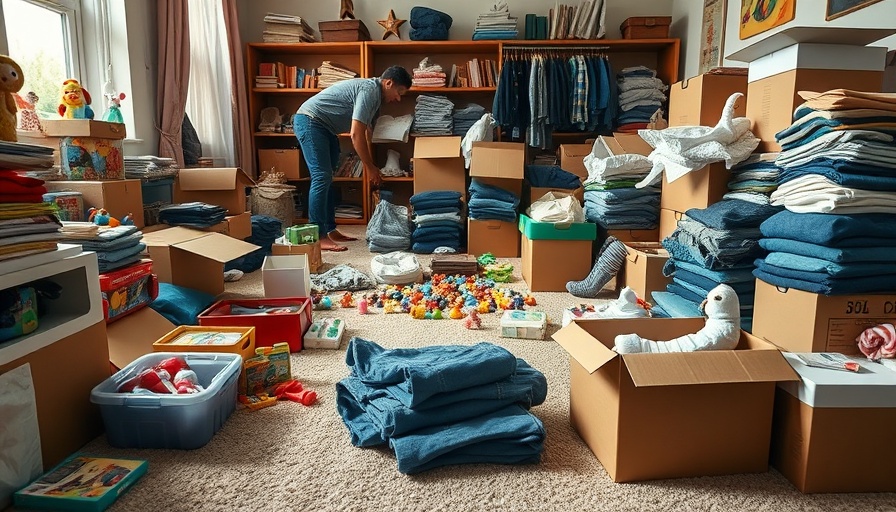
Decluttering: Why It’s More Than Just Tidying Up
Decluttering is not merely a fleeting trend; it can transform how we live, providing clarity and enhancing our mental well-being. As expert organizer Rachel Rosenthal underscores, 'Decluttering should be a lifestyle, not a one-time event.' This principle emphasizes that keeping our homes organized requires ongoing effort and mindfulness, not just periodic cleanouts.
Avoiding Common Decluttering Pitfalls
In the pursuit of a clutter-free home, many individuals inadvertently fall into common traps that hinder progress. Recognizing these mistakes can make a significant difference in achieving a well-organized space. Here are six pitfalls Rosenthal highlights:
1. Not Pacing Yourself
Ambitious declutterers often attempt to tackle their entire home in a weekend, a strategy more likely to lead to burnout than success. Instead, Rosenthal recommends adopting a manageable, room-by-room or even small-space-by-small-space approach. Breaking tasks into mini-sessions throughout the year can make the process feel less overwhelming and more sustainable.
2. Overlooking Categories
Sorting belongings into categories is crucial. Grouping like items allows you to recognize areas of excess, like five whisks or thirty pairs of jeans. This step helps evaluate what is truly necessary. Awareness of how much you own often prompts more thoughtful decisions about what to keep and what can be let go.
3. Engaging with Every Item
Each item in your home deserves attention. When decluttering, it’s vital to consider whether an item is loved, used, or meaningful. Many people keep things due to sentiment or fear of needing them later. A more intentional review process encourages letting go of items that no longer serve a purpose.
4. Missing a Room’s Function
Beyond simply removing unnecessary items, understanding each room’s function enhances effective organization. For example, if your living area serves as a family entertainment spot, ensure that furnishings promote that activity rather than clutter it with unrelated items. A well-structured home aligns with the way you live.
5. Holding on to ‘Just in Case’ Items
We’ve all harbored unrealized potential in items we cling to with the hope that we might use them ‘someday.’ This habit tends to accumulate clutter quickly. If an item hasn't seen the light of day in over a year, it probably doesn’t fit your current lifestyle and can be safely released.
6. Skipping a Decluttering Strategy
A well-thought-out strategy is key for maintaining motivation and avoiding frustration. Without a plan, decluttering can feel aimless and exhausting. Setting specific goals and methods can help sustain focus, making the decluttering journey feel more purposeful and less burdensome.
Future Trends in Decluttering
As the decluttering movement gains momentum, trends are evolving, emphasizing the balance between minimalism and functionality. With lifestyles becoming increasingly dynamic, we're likely to see a rise in smart organizing tools and tech-driven solutions that aid in maintaining order.
The Emotional Impact of Decluttering
Beyond physical organization, decluttering can significantly affect mental health. A well-ordered space can reduce anxiety and promote a sense of control. Social dynamics within households can also improve, as open and organized spaces may lead to less friction among family members.
Decisions You Can Make with This Information
Understanding these pitfalls empowers individuals to take actionable steps toward decluttering effectively. By choosing to engage actively with belongings and committing to an ongoing decluttering lifestyle, you can create a home that fosters harmony and reflects your life aspirations.
In conclusion, the art of decluttering is not merely about tidiness; it's a holistic approach to enhancing your life quality. Approach each decluttering session with intention, and consider the insights shared here to develop a habit that transforms your living space. Remember, it’s a continuous journey aimed at fostering a healthy and organized environment for you and your family. Take the time today to reassess your space, and begin your journey towards a more intentional lifestyle!
 Add Row
Add Row  Add
Add 




Write A Comment